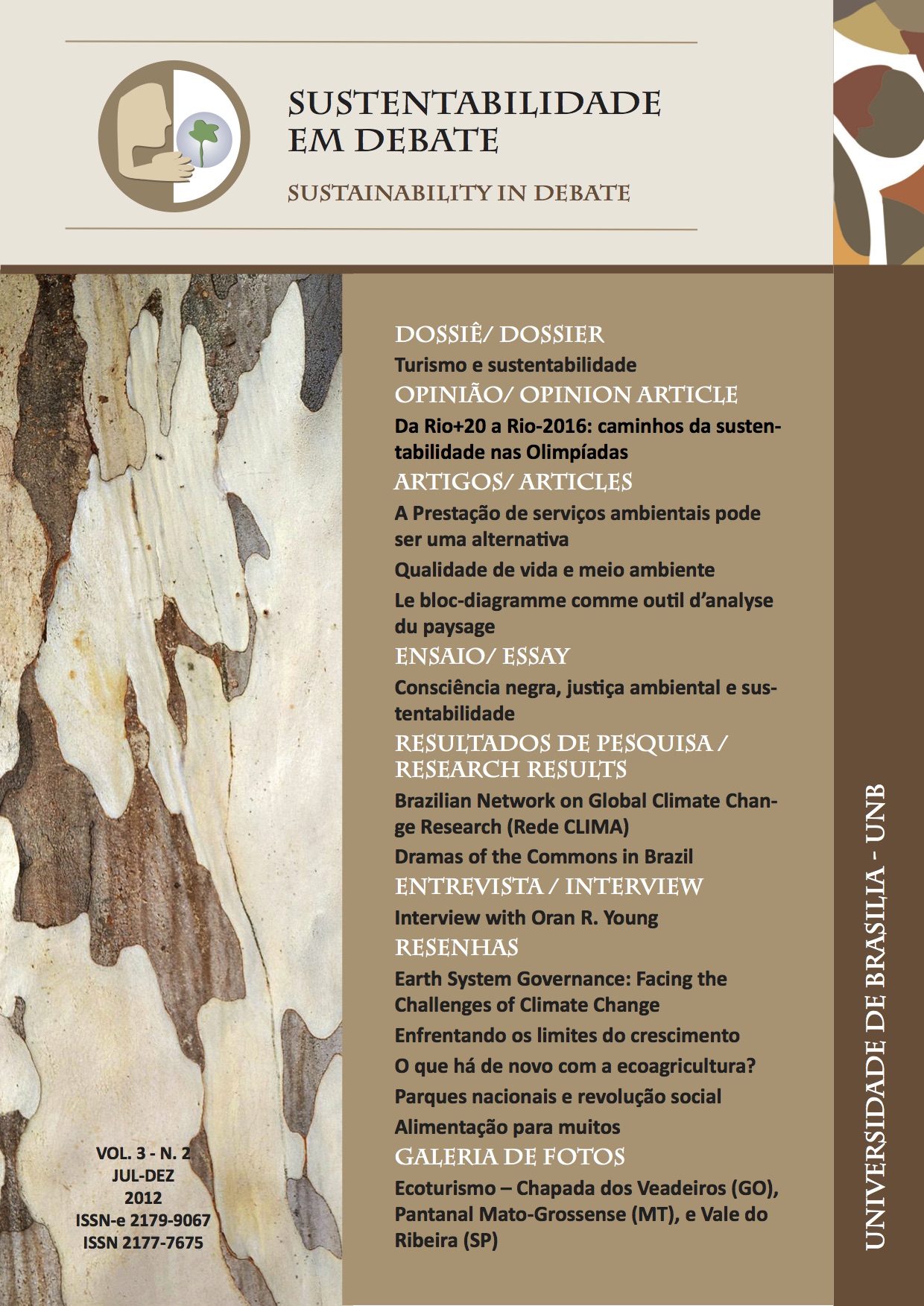Evocando o genius loci para a promoção de um desenvolvimento situado:
o caso Villa Sorra
DOI:
https://doi.org/10.18472/SustDeb.v3n2.2012.8126Keywords:
Sustainable local development, Enogastronomy, Gastronomy, Material cultural patrimony, Constructed environment, Genius lociAbstract
This article introduces some of the practical and theoretical implications of a local development
strategy. The strategy is based on the synergy between a local constructed patrimony and the
local enogastronomic patrimony. Departing from a theoretical framework, the article starts by
describing and analyzing the Villa dei Sapori project, developed in the context of an architectonic
complex in Italy. The complex, Villa Sorra, is located in the Modena region. The concept of
situated development is defined through this case study. It is also interpreted through the
experience of its manager. We arrive at the conclusion that the creation of territorial valorization
strategies, in a situated perspective, rely on the possibility of the existence of a dialogic relationship
between the project author and the genius loci (the “spirit of the place”).
Downloads
References
Elèuthera, 1993.
BUBER, M. (1921). Ich und Du. Consultado: (2001). Eu e Tu. Centauro Editora, 1921.
MAGNAGHI, A. Il Progetto Locale. Verso la coscienza del luogo. Consultado: (2010).
Il Progetto Locale. Verso la coscienza del luogo. Nuova Edizione Acresciuta. Torino:
Bollati Boringhieri, 2000.
MEADOWS, D.H.; Randers, J.; Meadows, D.L. Limits to Growth: The 30-Year Update.
White River Junction: Chelsea Green Publishing Company, 2004.
NORBERG-SHULZ, C. Genius Loci. Paesaggio Ambiente Architettura. Milano: Electa, 1979.
PAOLINI, D. I luoghi del gusto. Cibo e territorio come risorsa di marketing. Milano:
Baldini & Castoldi, 2000.
PETRINI, C. Buono, pulito e giusto. Principi di nuova gastronomia.Torino: Einaudi,
2005.
SIMON, H. A. The sciences of the artificial. The sciences of artificial. MIT Press,
1969 (Consultado: 1996).
WESTERING, J. Heritage and Gastronomy: the pursuits of the ´new tourist´.
International Journal of Heritage Studies, 1470-3610, volume 17, Issue 1, 46-61,
2011.
YIN, R. K. Estudo de caso - planejamento e métodos. 3. ed. Porto Alegre: Bookman,
2005.
ZAOUAL, H. Globalização e Diversidade Cultural. Cortez, 2003.
ZAOUAL, H. Nova Economia das Iniciativas Locais. Rio de Janeiro: UFRJ- COPPE,
Programa de Engenharia de Produção e DP&A Editora, 2006.
ZAOUAL, H. O homo situs e suas perspectivas paradigmáticas. Oikos, volume 9, n.
1, 13-39, 2010.
Downloads
Published
How to Cite
Issue
Section
License
SUSTAINABILITY IN DEBATE – Copyright Statement
The submission of original scientific work(s) by the authors, as the copyright holders of the text(s) sent to the journal, under the terms of Law 9.610/98, implies in the concession of copyrights of printed and/or digital publication to the Sustainability in Debate Journal of the article(s) approved for publication purposes, in a single issue of the journal. Furthermore, approved scientific work(s) will be released without any charge, or any kind of copyright reimbursement, through the journal’s website, for reading, printing and/or downloading of the text file, from the date of acceptance for publication purposes. Therefore, the authors, when submitting the article (s) to the journal, and gratuitous assignment of copyrights related to the submitted scientific work, are fully aware that they will not be remunerated for the publication of the article(s) in the journal.
The Sustainability in Debate Journal is licensed under Creative Commons License – Non-Commercial-No-Derivation Attribution (Derivative Work Ban) 3.0 Brazil, aiming at dissemination of scientific knowledge, as indicated on the journal's website, which allows the text to be shared, and be recognized in regards to its authorship and original publication in this journal.
Authors are allowed to sign additional contracts separately, for non-exclusive distribution of the works published in the Sustainability in Debate Journal (for example, in a book chapter), provided that it is expressed the texts were originally published in this journal. Authors are allowed and encouraged to publish and distribute their text online, following publication in Sustainability in Debate (e.g. in institutional repositories or their personal pages). The authors expressly agree to the terms of this Copyright Statement, which will be applied following the submission and publishing by this journal.








